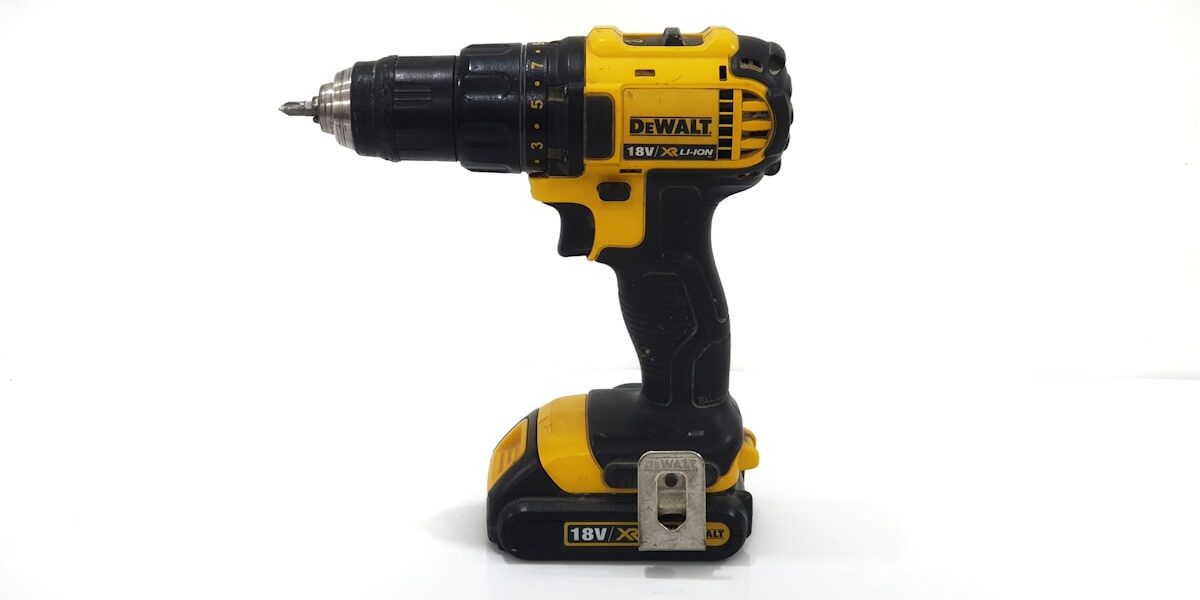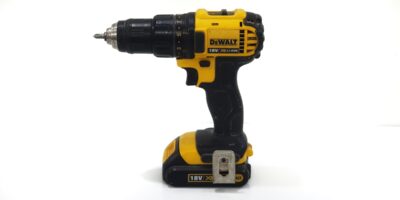
Electric screwdrivers vs drills has gotten noisy with gear reviewers pushing whatever sponsors them. As someone who keeps both on a peg board above my workbench and reaches for one or the other dozens of times a week, I’ve learned exactly which situations call for which tool. Today I’ll save you the trial and error.
What Each Tool Actually Does
But what is an electric screwdriver? In essence, it’s a low-torque, low-speed tool designed specifically to drive fasteners — not make holes. It runs at one speed, usually around 200-300 RPM, and has a fixed or quick-change bit holder. That’s it. It does one thing well.
A drill does more. It makes holes, drives screws, and on models with a hammer function, even drives into masonry. It runs at variable speed from near-zero to 1,500+ RPM and has a keyless chuck that accepts round-shank bits.
That’s what makes this comparison endearing to us DIYers — both tools overlap in function but neither replaces the other entirely.
Where the Electric Screwdriver Wins
Assembly work is where the screwdriver shines. Building flat-pack furniture, assembling cabinets, installing hinges, putting together shelving units — any job that involves driving dozens of the same fastener into similar material benefits from a dedicated screwdriver.
The screwdriver is lighter, smaller, and less tiring over extended use. I’m apparently someone who notices hand fatigue, and a compact screwdriver during a three-hour cabinet assembly session is noticeably easier than gripping a drill for the same job.
Screwdrivers also have less torque, which sounds like a limitation but is actually an advantage when driving small screws into wood that might split, or into delicate materials like plastic housings and thin sheet goods.
Where the Drill Wins
The moment you need to make a hole, grab the drill. No screwdriver will accept a twist bit properly, and attempting to use one is a safety hazard, not just an inconvenience.
The drill also wins on power. Driving long screws into hardwood, lag bolts into framing, or deck screws into pressure-treated lumber — these jobs need torque the screwdriver simply doesn’t have. The drill’s variable speed clutch lets you dial in exactly how much drive force to apply before the clutch slips, preventing over-driven screws and stripped heads.
Frustrated by stripped screws in hardwood, I eventually learned to always pre-drill in anything harder than pine. That’s a drill-only operation and it makes every subsequent screw drive cleaner regardless of which tool you use for final driving.
Do You Need Both?
If your budget forces a choice: get the drill. It covers more ground, handles all the hole-making work, and will drive screws adequately. The screwdriver is a luxury that becomes valuable once you’re doing repetitive assembly work regularly.
If you’re doing significant furniture assembly or cabinetmaking: yes, both. Keep the screwdriver loaded with your most common bit and grab it for 90% of driving tasks. Keep the drill for holes and heavy-duty driving.
A compact 12V drill can also serve as a quasi-screwdriver for light work, splitting the difference if you don’t want to own two tools.
Quick Comparison
- Electric screwdriver: Better for extended repetitive driving, lighter, less fatigue, good for small fasteners and delicate materials
- Drill: Required for drilling, better for long screws and hardwood, more versatile overall, higher torque
- Impact driver: Worth considering as a third tool — combines compact size with high torque, excellent for construction and long fasteners



